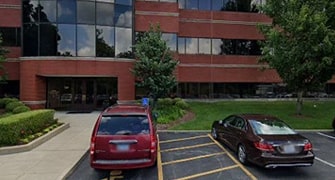Free Consultation
(314) 500-HURT
Sovereign immunity has been recognized in Missouri since 1821 and official immunity has been recognized since 1854.
Southers v. City of Farmington, 263 S.W.3d 603, 611 (Mo. 2008).
Both types of immunity derive from the British common law. Sovereign immunity reflects the British common law idea that
the “King can do no wrong.”
In Missouri, official immunity was adopted in Reed v. Conway, 20 Mo. 22 (1854), also from British common law, based on
the idea that public officers are immune from liability for discretionary decisions, so long as their motives were “not
tainted by fraud or malice.”
The law surrounding each has application to many different types of political subdivisions and public employees. It is
helpful to provide an overview of the laws, and then specify their application to different defendants under current
Missouri law.
State Sovereign Immunity
The State of Missouri and its governmental divisions are generally immune from suit for torts, as they are sovereigns.
RSMo. § 537.600. However, § 537.600 provides that immunity of the public entity from liability and suit for compensatory
damages for negligent acts or omissions is expressly waived in two instances and a third instance is covered in RSMo. §
537.610.
Those 3 instances where sovereign immunity is waived are:
Four notes on these waivers (and a note on Illinois handling of sovereign immunity):
First, for negligent design claims against the Missouri Highway and Transportation Commission (don’t sue MODOT), they
have a special defense. If the highway department can prove that the alleged negligent, defective, or dangerous design
reasonably complied with highway and road design standards, they get a complete bar to recovery. § 537.610(2).
Second, RSMo. § 537.600.2 clarifies that the waivers of immunity are absolute waivers of sovereign immunity.
Third, longstanding case law interpreting the statutes holds that municipalities waive sovereign immunity for
governmental functions to the extent they are covered by liability insurance. Southers, at 609.
Where a party can show the existence of insurance and that it specifically covers the negligence at issue, immunity for
public entities has been waived under Missouri statute. Brennan v. Curators of the Univ. of Mo., 942 S.W.2d 432, 434
(Mo. Ct. App. 1997).
Fourth, under RSMo. § 537.610, the maximum amount of coverage shall not exceed $2 million for each occurrence
and shall not exceed $300,000 for any one person. Further, if coverage of the insurance is less than these
amounts, immunity is only waived up to the coverage of the amount of insurance.
No award for damages against a public entity within RSMo. § 537.600 and RSMo. § 537.650 can include punitive or
exemplary damages. RSMo. § 537.610(3).
Lastly, Illinois has a slightly different model. In Illinois, the Illinois Court of Claims has exclusive jurisdiction to
hear all claims against the state founded upon any law of the State of Illinois, founded upon any contract entered into
with the state, and all claims against the state for damages in cases sounding in tort. 705 ILCS 505/8.
Further, pursuant to Court of Claims Act § 22-1, any person who brings a claim for personal injuries in the Court of
Claims must file specific notice of the claim within one year from the date of the injury or when such cause of action
accrued in the office of the Illinois Attorney General and the Clerk of the Court of Claims. 705 ILCS 505/22-1.
Municipality Sovereign Immunity
Jungerman v. City of Raytown, 925 S.W.2d 202, 204 (Mo. banc 1996) — found common law sovereign immunity belonged only
to state entities and sometimes municipalities. Municipalities are not provided immunity for proprietary functions but
are immune under sovereign immunity for governmental functions. Id.
Proprietary functions are performed for the benefit or profit of the municipality as a corporate entity. Id. On the flip
side, governmental functions are those performed for the common good. Id.
The operation and maintenance of a police force is a governmental function. Fantasma v. Kansas City, Mo., Bd. of Police
Comm’rs, 913 S.W.2d 388, 391 (Mo. Ct. App. 1996).
Further, employees are not entitled to the sovereign immunity of their state or municipality employers. Per Southers,
even though municipalities act through employees, the waivers of immunity applicable to municipalities and political
subdivisions do not abrogate official immunity protections afforded to public employees. Southers, at 609.
If municipalities have tort immunity, they still waive immunity with auto and premises claims, and applicable insurance.
RSMo. §§ 71.185 and 537.610; Jungerman v. City of Raytown, 925 S.W.2d 202, 204 (Mo. Banc 1996).
Official Immunity
Employees of governments sometimes get Official Immunity, which is a judicially created doctrine. Official Immunity
protects public employees for the alleged acts of negligence committed during the scope of their official duties for the
performance of discretionary acts. Davis v. Lambert-St. Louis International Airport, 193 S.W.3d 760, 763 (Mo. banc
2006).
This means the doctrine does not provide protections for torts committed when acting in a ministerial capacity. Kanagawa
v. State, 685 S.W.2d 831, 835 (Mo. banc 1985).
Classifying an act as discretionary or ministerial depends on the degree of reason and judgment required. Kanagawa, 685
S.W.2d at 836.
Courts use a three-pronged test to determine how to classify an act. You consider: 1) the nature of the public
employee’s duties; 2) the extent to which the act involves policymaking or exercise of professional judgment; and 3) the
consequence of not applying official immunity.
Because the defense of official immunity is personal to a public employee, it cannot be extended to protect his
employing government entity sued under the doctrine of respondeat superior. Southers v. City of Farmington, 263 S.W.3d
603, 611 (Mo. 2008).
A government employer may still be liable for the actions of its employee even if the employee is entitled to official
immunity because the doctrine protects the employee from liability, but it does not erase the existence of the
underlying tortious conduct for which the government employer can be vicariously liable.
Application of official immunity law regarding paramedics includes an additional step in the analysis. Courts must still
determine if the action was discretionary or ministerial, however, first courts now ask if the defendant was operating
in a “true emergency situation” with limited information available.
If so, then their decisions are judged based on the information they had available at the time. Thomas v. Brandt, 325
S.W.3d 481 (Mo. Ct. App. 2010).
However, simply because an action is taking place during an emergency does not mean it is automatically discretionary.
This was the court’s finding in Richardson v. Burrow, 366 S.w.3d 552 (Mo. Ct. App. 2012) (“Richardson II”).
Richardson II, decided after Thomas, involved the failure of EMT personnel to intubate a patient properly during
transport when the patient’s stats fell below 80. The court found the paramedic did not engage in discretionary conduct
because his conduct was mandated by the criteria requiring intubation under the circumstances presented – even if the
circumstances were emergent in nature. Id.
There, the court pointed out that even in a true emergency, an act can still be ministerial. Even in the emergency
situation, the paramedic had all information necessary, but just did not act according to the policy correctly.
Police Officers and Firefighters
Normal traffic accidents and high speed chases where a fleeing vehicle injures someone, constitute some of the vast
situations where the defendant is a police officer. The main case applicable to these situations is Southers v. City of
Farmington, 263 S.W.3d 603, 611 (Mo. 2008).
Debra Southers sued the City of Farmington and individual police officers for negligence. The police officers were
responding to an emergency and were engaged in a car chase with the suspect. While in chase, the officers crashed into a
vehicle, killing two people and injuring Debra Southers as well. The plaintiffs sued the city and the officers involved
in the chase and collision.
The issue before the Missouri Supreme Court was who had what immunity. The court ultimately found that the officers who
were involved in the accident were immune from suit. The Court in Southers stated that the official immunity doctrine
applies to officers responding to emergencies.
If the conduct is in the course and scope of employment – and for officers an emergency is just that – they are immune
from suit. However, if the officer is not responding to an emergency, then they might not be entitled to official
immunity. Subsequent cases have attempted to draw a line where acts are discretionary.
In Rhea v. Sapp, 463 S.W.3d 370, 372–73 (Mo. Ct. App. 2015), as modified (Apr. 28, 2015), Margaret Rhea filed a wrongful
death suit against multiple defendants after her car was struck by a fireman responding to a fire. The question on
appeal was whether the individual firefighter was entitled to official immunity.
The firefighter alleged he was performing a discretionary act and the court agreed. Id. at 376. The court found the
individual firefighter acted in the course of his duties as chief of the fire department when he responded to the fire.
Id. at 378. Based on the circumstances known to him at the time, the firefighter exercised his discretion when he
elected to speed while traveling to the fire. Id.
This required judgment on behalf of the firefighter in determining the speed he could travel in response to a call from
dispatch of a fire on a cattle trailer in the middle of the highway. Id.
What if the firefighter violates internal policies on speeding: “[p]ublic employees’ conduct that is contrary to
applicable statutes or policies can constitute evidence that their conduct was negligent, but that conduct does not
remove their negligence from the protections of the official immunity or public duty doctrines where the provisions at
issue indicate no intent to modify or supersede these common law immunity protections.” Southers, at 617.
In McCormack v. Douglas, 328 S.W.3d 446 (Mo. Ct. App. 2010), the court considered whether the official immunity doctrine
applied to a volunteer firefighter. The court found the volunteer was entitled to official immunity and there was no bad
faith because the volunteer violated the district’s policy and without more, the facts amounted to negligence during the
course and scope of employment and performing discretionary acts. Id. at 451.
Founder | Injury Attorney
Gary Burger has dedicated his career to standing up against bullies. The founder and principal attorney of Burger Law | St. Louis Personal Injury Lawyer has helped hundreds of Missouri and Illinois individuals and families recover th …
Years of experience: 30 years
Location: St. Louis, MO

Similar Blog Posts

Whether at a restaurant or a store, wet or other hazardous conditions can cause slip and fall accidents. Despite the cause of a slip and fall accident, the property owner where the...

As we continue to see more and more of the environmental effects of climate change on the world around us, courts have also seen an increase in civil suits alleging that climate ...

Alternative dispute resolution (ADR) is a legal process that offers parties another option besides traditional litigation to resolve legal conflicts and disputes. It can be a more ...


521 W. Main Street Suite 201 O
Belleville, IL 62220
By appointment only
(618) 500-4878 GET DIRECTIONS
332 S Michigan Ave Suite 900
Chicago, IL 60604
By appointment only
(312) 500-HURT GET DIRECTIONS
100 Chesterfield Business Pkwy Suites 200-222
Chesterfield, MO 63005
By appointment only
(314) 648-8348 GET DIRECTIONSNO FEES UNTIL WE WIN YOUR CASE
We offer free consultations and are available 24/7 to take your call. Live chat, text, and virtual meetings are available.
or call us at